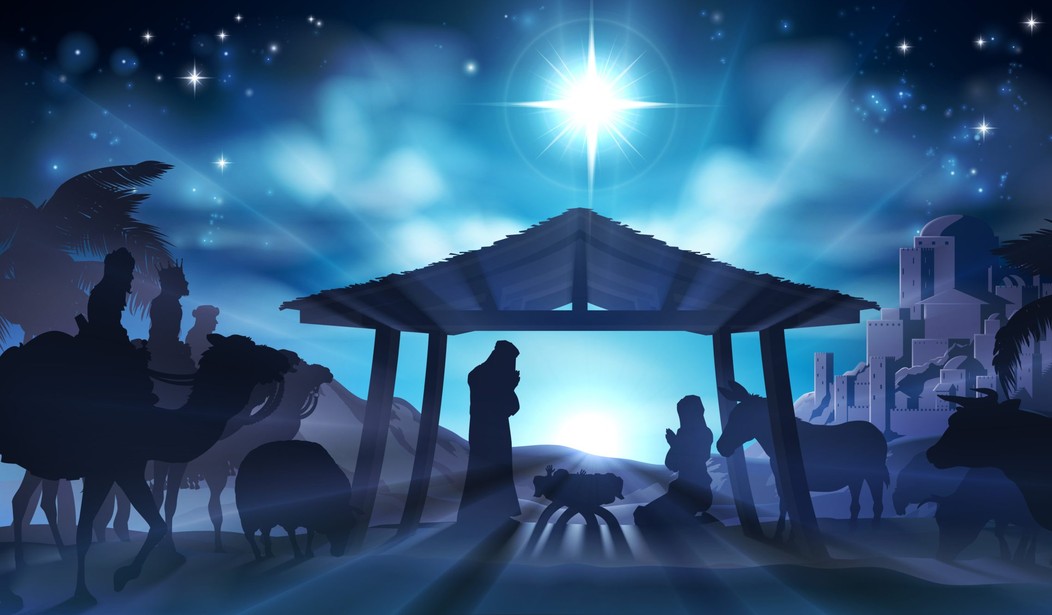“O Holy Night:” It’s a tough song to sing, isn’t it? Also hard to play on the piano (so I’ve been told since I can’t play anything but the radio). But it is a “show stopper” at all the Christmas cantatas. You just can’t help but get a thrill when you belt out the chorus “Fall on your knees…”
The carol “O Holy Night” was actually banned by church leadership, and if it were not for the common people, the powerful song would have faded into obscurity. In 1847 a wine merchant in France, Placide Cappeau, was asked by his parish priest to write a poem for the Christmas Eve service.
On a hard carriage ride to Paris, the gentleman imagined himself a witness to the birth of Christ. The wonder of that glorious moment flowed through his pen, and he gave us the poem “Cantique de Noel” (song of Christmas). Cappeau had the words, but now he needed the music to lift souls heavenward in song.
So … he asked his friend, Adolphe Charles Adam. It was an unusual request. Adam was certainly a trained classical musician, so writing a tune was no big deal for him. But he was not a Christian — he was of the Jewish faith!
Nevertheless, he good naturedly received his friend’s request and began at once to compose an original tune for the poem. It was a perfect match and the song was performed for the congregation on Christmas Eve. The French loved the song! Here is a performance of the original song in the French language with English subtitles:
Unfortunately, a few years later it was learned that Cappeau had left the Church for the philosophy of socialism, and after it was discovered that the composer was not of the Christian faith, the Church leadership in France banned the song from their liturgy.
Next Page: But the French would not let this beautiful song die.
But the French would not let that song die. Ten years after the song was composed, an American abolitionist, John Sullivan Dwight, heard the carol in French. He heard the vibrant message of hope — especially the verse that said in French, “The Redeemer has broken every bond/ He sees a brother where there was only a slave/ Love unites those that iron had chained.”
Dwight freely translated from the French, switched a few things around (while keeping the same basic meaning), and gave us his English version which we sing today. In his version the line about oppression is translated, “Truly He taught us to love one another/ His law is love and His gospel is peace/ Chains shall he break for the slave is our brother/ And in His name all oppression shall cease.”
He brought the song to the United States where it quickly became popular before and during the American Civil War.
Here is an amazing a cappella rendition of Dwight’s version which has the words we all know and love:
Legend has it that the French Catholic Church finally received the song back into their services after an encounter between French and German soldiers in the Franco-Prussian War of 1870-1871. During a lull in the fighting on Christmas Eve, some French soldiers began singing “Cantique de Noel.” The German soldiers were impressed with their tune and responded with their own German Christmas songs. A truce held for 24 hours.
Next Page: The inspiring end of the story.
The end of the story involves the beginning of modern technology — the invention of the radio. On Christmas Eve 1906, Reginald Fessenden (a former colleague of Thomas Edison) was experimenting with a microphone and a telegraph. He played on his phonograph “Ombra mai fu” by George Frideric Handel. Then he picked up his violin and began playing — you guessed it — “O Holy Night.” He finished by reading the story of Christ’s birth as recorded in Luke 2.
Wireless operators on ships in the Atlantic were stunned as they heard what was the very first AM radio broadcast ever! And it was about the song and scripture of the birth of the Messiah.
“O Holy Night.” Written by a wine merchant, set to music by a Jewish composer, banned by the Church, kept alive by the French, adopted by an American abolitionist, sung between warring troops, and at last broadcast into the world through invisible radio waves. What a story. What a message.
“Fall on your knees. O hear the angel voices. O night divine. O night Christ was born.”









Join the conversation as a VIP Member